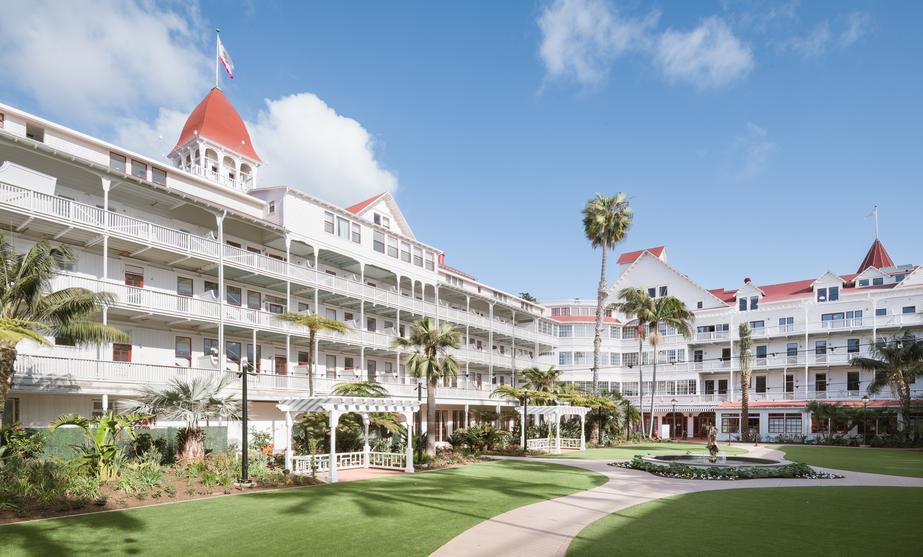The hotel sector shakes off its post-Covid blues
The Southeast has been particularly active for new projects.
Over the past year, luxury and resort projects have been key drivers for AEC firms’ work within the hotel sector.
The Southeast, Southwest, and California are among the markets where firms report their strongest demand for projects that target both business and leisure travelers. Their clients’ priorities are focused on creating high-quality experiences for their guests, with an eye toward brand awareness and ROI growth.
“Hotel brands are reinvesting in their flagship properties,” notes Bob Lopez, Project Executive for the general contractor Swinerton. Brand elevation is among the factors that Lopez says are “critical” to securing long-term event contracts and attracting “high-value” clientele.
Hotel developers are looking to partner with “problem solvers” that can deliver projects on time and within budget, says Jeff Gouveia, President of Suffolk, which through its history has managed more than 100 hotel projects totaling 25 billion sf.
Lately, Suffolk has seen its steadiest demand in Florida and California, especially as coastal destinations have become increasingly popular with tourists. In Florida, its projects vary from family destinations like Great Wolf Lodge in Naples, to urban hotels like Tampa EDITION. Gaming projects are also a bright spot.
In California, Suffolk oversaw construction of Regent Santa Monica Beach, the luxury brand’s first flagship hotel in the U.S.; the Moxy + AC Hotel in Los Angeles; and the 766,000-sf, $268 million Chicken Ranch Casino Resort in Jamestown.
DLR Group has fielded “significant” demand for hotels in such areas as university and college communities, mixed-use districts, sports/lifestyle centers, and outdoor destinations. Ed Wilms, DLR’s Global Hospitality Leader and Senior Principal, adds that the Southeast has been “very active” in this sector, as have specific markets in Colorado, Utah, Cleveland, Chicago, and Kansas City.
However, some AEC firms caution that the hotel sector isn’t always smooth sailing. While the design engineering firm IMEG is experiencing a “fair amount” of proposal activity, design period schedules are not always predictable, with delays in starting or extended pauses between phases. Bob Winter, PE, IMEG’s Director of Hospitality, says these delays are typically the result of project financing or construction cost budgeting issues.
Bill Wilhelm, President of R.D. Olson Construction, says that while his firm’s pipeline for hotel projects is “robust,” many of its clients have been acting with caution due to uncertainties about labor costs and tariffs on materials.
A mix of new builds and renos
Demand for hotel projects is typically a combination of new construction, renovation, and adaptive reuse. Olson, for example, recently completed construction on AC Hotel Pasadena, and expects to finalize construction on Appellation Healdsburg later this summer. It recently broke ground on an expansion of Lido House in Newport Beach, and anticipates three more groundbreakings this year.
Much of DLR Group’s recent work in this sector, says Wilms, has consisted of major new builds either starting or resuming after being on pause the past several years. Winter says IMEG’s “significant wins” so far this year have been a mix of new construction and major renovation work. IMEG also tapped into the adaptive reuse market with recent projects like the $60 million conversion of a former YMCA in St. Louis into Museum 21C, a 10-story, 200,000-ft boutique hotel.
Swinerton led the transformation of the 137-year-old Hotel Del Coronado in San Diego that focused on historic restoration and modern upgrades. Lopez says this project included the interior demolition of the hotel’s Victorian Building and the reconfiguration of 337 guestrooms into 404. The hotel’s Garden Courtyard was also rebuilt, with its fountain and bronze statue restored.
Last February, Chicago-based developer and construction manager Keystone Group, working with a design team made up of OVAS Design, Ratio Architects, and Circle Design, completed construction of InterContinental Hotel Indianapolis, a $121 million transformation of that city’s century-old Illinois Building into a 170-key luxury hotel. The 12-story hotel includes Indianapolis’ only Penthouse Suite.



